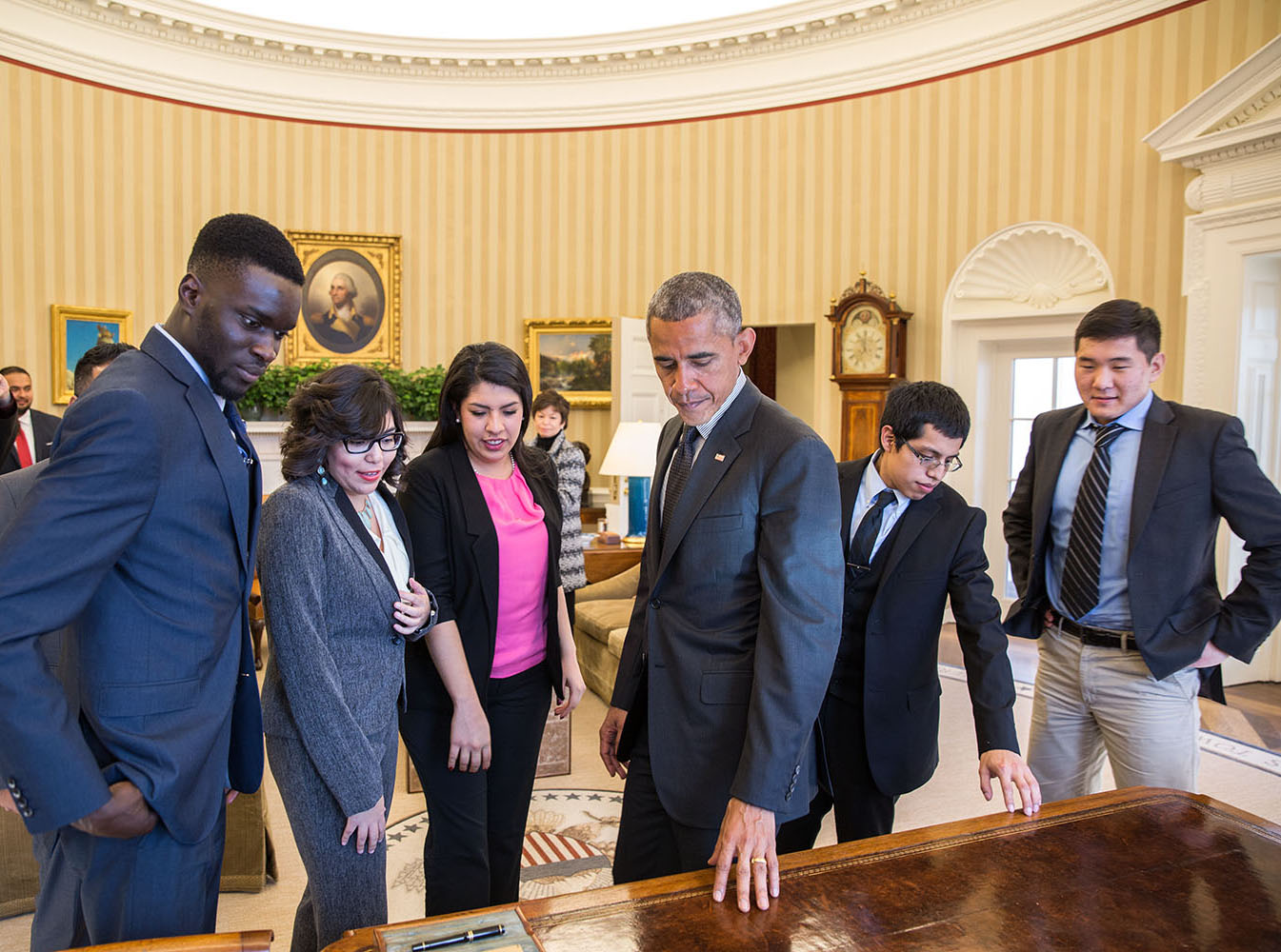Views expressed in opinion columns are the author’s own.
Imagine living in one place since you were a child, only to be told you are no longer wanted and have to return to a birthplace you may not remember. How could this possibly be fair? The society to which you’ve contributed is saying it no longer values you, and it wants you to leave. By ending the Deferred Action for Childhood Arrivals program, President Trump is saying he does not value the nearly 800,000 people it protects.
DACA, an Obama-administration program created in 2012, allows people who came to the U.S. under the age of 16 to live and work in the U.S., as long as they do not have serious criminal histories. President Trump has declared DACA will end in six months, and its beneficiaries can be deported starting at that time.
Trump’s decision is both morally impermissible and detrimental to American interests. DACA was designed to allow undocumented immigrants to declare their presence and reside here legally. For immigrants to gain protection under DACA, they had to disclose their undocumented status to the government, along with other personal information. These undocumented immigrants likely regret their brave decision to have faith in the government, which now has a database it can use to track them down. Not only is Trump’s choice morally unacceptable, it gives credence to the idea that the U.S. government is untrustworthy.
Yes, the people protected under DACA did not immigrate legally, but they were children when they came. While they likely did not choose to come here out of their own volition, this is the only real home they have ever had.
I doubt we would be having this discussion if DACA recipients were mostly from European countries. Under the guise of law and order, Trump has again proven that his vision of America has room only for people who look like him.
Further, this decision will economically hamper U.S. businesses. Many business leaders struggle to find employees in the U.S. with the skills they need to run their businesses, which is why the U.S. has 27 million foreign-born workers. With DACA rescinded, businesses will lose skilled employees and may not be able to replace them with unskilled workers born in the U.S. Overall, revoking DACA is projected to cause a $60 billion loss in federal tax revenue and a $280 billion loss in economic growth over the next 10 years.
We cannot think of DACA recipients as far removed from ourselves. These are real people, just like us. In fact, as of fall 2016, 113 students at the University of Maryland received DACA. These are students sitting in your lectures, indistinguishable from anyone else. Just like the rest of us, these individuals spent their childhoods in the U.S. and they now seek to improve their career opportunities by pursuing a college degree.
Higher education should be about giving anyone who is willing to work hard the opportunity to seek out knowledge and meet their goals. To somehow suggest that some of the students here don’t deserve their spot is nothing more than discrimination based on place of birth.
If we — as an institution of higher learning — value inclusion, diversity and equal opportunity, we must stand up for our at-risk classmates and colleagues. Staying silent is complicity. It is not enough that President Loh has condemned Trump’s decision. We need to defend our peers ourselves.
We can do so by calling our congressional representatives and attending protests. Congress has six months to allow DACA recipients to stay. Repealing DACA is not about bringing back jobs to U.S. citizens; it is about excluding a group of people who have lived here since they were children because Trump has determined their birthplace and skin color makes them less American. If we believe in the values our university and our country claim to uphold, we have to protect our peers.
Mitchell Rock is a senior government and politics and physiology and neurobiology major. He can be reached at mrock13@umd.edu.



